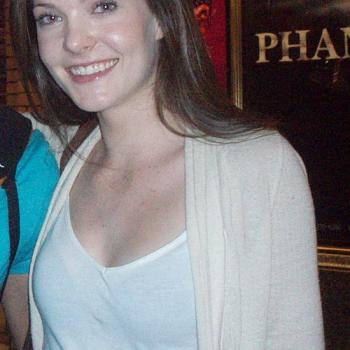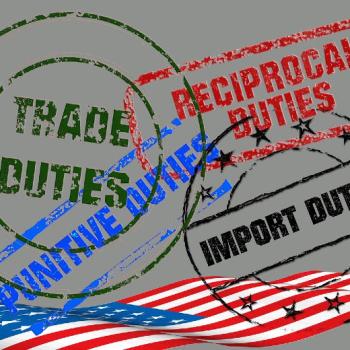Is there one story told in the book that really crystallizes what you're hoping to see from young generations today?
Let me choose two, one more domestic and one more international. The first, which is in the book, is about a campaign in Oregon that took on the practice and system of predatory lending that had become very common in Portland but also elsewhere in the state and around the country. It was a coalition of churches and progressive organizations that came together to raise this issue of predatory lending. One of the factors that tipped the campaign over the edge was the involvement of the evangelical church in Oregon. They had been a newer addition to the cause, but a guy named Brian Schwartz, who was the coordinator of the Center for Christian Values up in Oregon, part of a network of churches committed to social justice, really framed the issue of predatory lending as an issue of usury -- drawing on Jesus' condemnation of usury -- and it really lit a fire within evangelical churches to get involved in this broader coalition.
Together they all mounted this David and Goliath campaign in which they were far outspent by the payday lenders, who mounted an extensive public relationships campaign to defend what they were doing. But because the moral appeal was so strong, and the economic injustice and exploitation were so clear, the campaign was very successful in mobilizing public opinion against the inordinate amount of interest that people were charging, especially in low-income neighborhoods. Ultimately they convinced the state legislature to put a limit on the interest that payday lenders could charge, and in effect this put many of them out of business. It's an example of where everyday people in churches were able to use their voice and be inspired by their faith to have a profound impact on people's lives.
The international story I would cite emerges from my own experience, and many others I've worked with were a part of this success story. The Jubilee Campaign for debt cancelation was one of the most successful social movements in the last couple decades. Churches played an instrumental role in putting at the top of the political radar screen an issue that had been buried for many years: the onerous, unsustainable debt that many developing countries were paying off in the 1980s and 1990s. One of the reasons the campaign was so successful was because it took this text from Leviticus, obscure for many Christians, which calls for a Jubilee Year every seven years. God called on the Jewish people to leave the land fallow and forgive debts that were owed to you, and to set slaves free, as a way of righting relationships between people. This difficult principle was applied to the modern-day crisis facing many evolving countries, which is debt. It became a powerful call to action, and Jubilee network became a very broad coalition including churches and environmental and human rights organizations. Through letter-writing campaigns and vigils and demonstrations and lobbying, they made this a bipartisan issue and convinced first President Clinton and then President Bush to forgive a great deal of debt -- first the United States, and eventually the World Bank and IMF put in place a process where countries could get that debt canceled. To this day, billions upon billions of debt has been canceled and that has freed up immense resources to fight poverty in these developing countries.
Will social justice ministries in the next ten years be the same as they have in the last ten?
That's a good question. There's already been a pretty significant shift particularly among younger Christians around how they define and embrace social justice. In the past, social justice has been mischaracterized and sometimes dismissed as a purely liberal or progressive set of causes or issues. Certainly, the Religious Right, particularly in the 1980s, convinced a lot of Christians that the real issues Christians should be concerned about in the social realm were hot-button issues like abortion and gay marriage. Those are very important. But our concern with those issues should not be to the exclusion of a whole set of issues that are central to the gospel, issues like poverty and the environment and modern-day forms of exploitation and slavery.
So there has already been a broadening of the Christian agenda, which has been very encouraging to see. One of the things that needed to happen in order for that broader agenda to have a sustained political impact, is for young people and Christians in general to be better equipped and empowered in terms of how to act on their faith and organize their communities in a way that will make a difference politically. One of the obstacles is that there is still a great deal of cynicism and disillusionment around our political process, especially because it has become so acrimonious. So, it's critical to show that we can become involved in politics without that involvement corrupting our faith.





